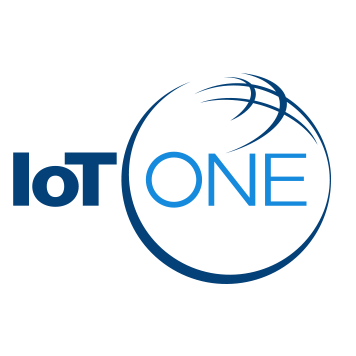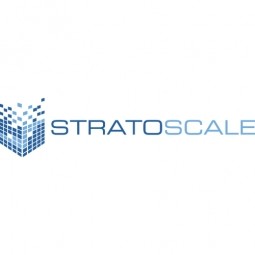Hitachi Vantara
启发下一个
概述
|
总部
美国
|
成立年份
2017
|
公司类型
私营公司
|
收入
< $10m
|
|
员工人数
1,001 - 10,000
|
网站
|
推特句柄
|
公司介绍
Hitachi Vantara 是 Hitachi, Ltd. 的全资子公司,帮助数据驱动型领导者发现并利用数据中的价值进行智能创新,并取得对企业和社会至关重要的成果。他们将技术、知识产权和行业知识相结合,提供数据管理解决方案,帮助企业改善客户体验、开发新的收入来源并降低业务成本。只有 Hitachi Vantara 通过结合深厚的信息技术 (IT)、运营技术 (OT) 和领域专业知识来提升您的创新优势。他们与世界各地的组织合作,将数据推向有意义的成果。
物联网解决方案
Lumada for IoT 使您的物联网 (IoT) 解决方案能够交付高价值成果。利用来自 Lumada 应用程序、边缘智能和共创服务的可操作数据洞察力的力量。 Lumada Edge Intelligence 支持可操作的实时洞察和边缘运营数据管理。 Lumada Maintenance Insights 通过 AI 和分析优化资产,以减少计划外停机时间。 Lumada Manufacturing Insights 通过简化运营提高您的工厂响应速度。 Lumada Video Insights 分析来自视频、物联网传感器、业务和地理空间源的数据。
母公司
物联网应用简介
Hitachi Vantara 是基础设施即服务 (iaas), 平台即服务 (paas), 应用基础设施与中间件, 分析与建模, 和 网络安全和隐私等工业物联网科技方面的供应商。同时致力于化学品, 设备与机械, 金融与保险, 医疗保健和医院, 和 石油和天然气等行业。
技术栈
Hitachi Vantara的技术栈描绘了Hitachi Vantara在基础设施即服务 (iaas), 平台即服务 (paas), 应用基础设施与中间件, 分析与建模, 和 网络安全和隐私等物联网技术方面的实践。
-
设备层
-
边缘层
-
云层
-
应用层
-
配套技术
技术能力:
无
弱
中等
强

Supplier missing?
Start adding your own!
Register with your work email and create a new supplier profile for your business.
实例探究.

Case Study
Global Manufacturer Improves Polymer Yield with Industrial IoT Solution
A global manufacturer seeks to improve production yield at polymer mixing process.The company’s polymer mixing process was producing output of inconsistent quality, with yields sometimes dipping as low as 50%.The scrapping of poor batches created huge costs and was crippling production capacity.Dynamic product specification in addition to variation in a range of production parameters causing the trouble.

Case Study
Bank of Tibet Accelerates Deployment of Efficient Data Centers
Build Two Green and Efficient Data Centers in Four MonthsOver a period of just four months, the Bank of Tibet needed to complete hardware procurement and software testing for two data centers and have them ready to go live. The two data centers needed an active-active configuration to ensure data security and business continuity, and allow the Bank of Tibet to meet the requirements for green and efficient data centers.

Case Study
Israel Aerospace Industries Ensures Every Minute Counts
Israel Aerospace Industries (IAI) is a global leader in the development and manufacture of aerospace and defense solutions. Owned by the Israeli government, IAI designs systems for naval vessels, civil and military aircraft, homeland defense, satellites and command centers. With a revenue of US$3.83 billion, IAI employs some 16,000 people and is listed on the Tel Aviv Stock Exchange.Operating at the cutting edge of research means that every minute counts for IAI’s production teams. IAI’s core IT environment consists of VMware, Microsoft Exchange and SQL Server, and Oracle database. The existing and new applications produce a torrent of data, and managing the growth while maintaining storage performance caused a constant IT headache.
Case Study
Lozier's Digital Transformation: Maximizing Efficiency with Oracle
Lozier Corporation, a leading manufacturer of products for retailers, was facing significant challenges due to its outdated ERP system. The system, residing on an ageing mainframe, was unable to deliver reliable business management systems, consolidated data, and efficient processes. The company's business processes were sometimes inefficient due to these disparate systems. For instance, digital orders from customers had to be processed manually by Lozier's team, which was not only time-consuming but also increased the risk of inaccuracies and errors. The leadership team at Lozier recognized the need for a modern ERP system and industry best practices to drive operational excellence and ensure the company's continued success in the retail industry.

Case Study
SPAR Retail Group Finds Fresh Business Agility With Private Cloud
SPAR was first established in Austria in 1954, before expanding in the 1970s when the original founding families joined with other regional wholesalers to form SPAR Austria AG, a 100% privately owned Austrian company. SPAR has since grown into a food retail giant, generating €5.68 billion in food sales. The group also owns the Hervis sports fash-ion brand that sells a further €490 million and a shopping center business with revenues of €2.85 billion.From the introduction of the cash register to customer loyalty cards and business intelligence, SPAR has thrived during constant retail revolutions. But today’s tech-savvy consumers expect to be able to jump from mobile app to website and then visit a store to request home delivery. How could SPAR keep up with the enormous pace of change?

Case Study
GRZ IT Center Gains Private Cloud Security at Public Cloud Prices
GRZ IT Center specializes in providing IT services for leading regional banks in Austria. Headquartered in Linz, the company employs more than 450 people to support 86 banks, which collectively operate 458 branches and serve more than a million customers.In the last few years, competition in the IT services market has intensified dramatically. In particular, global public cloud vendors are using their economies of scale to compete aggressively on price. With this trend set to continue, local providers such as GRZ IT Center face a choice: Find ways to cut costs and compete more effectively, or risk watching services being moved off into the public cloud.
Case Study
Revolutionizing Shopping Mall Experience with IoT
The company, a global chain of shopping malls, was committed to delivering a superior in-person shopping experience. This included services like Wi-Fi on arrival, valet parking, personal shopping, and access to an exclusive lounge. To ensure a flawless experience, the company needed its IT systems to be extremely reliable as even a few minutes of downtime could impact sales and customer loyalty. Furthermore, to ensure that its malls always offered the right brands and products in the most appropriate formats, it was critical to track and analyze data on guests’ behavior as they moved through the mall and made their purchases in real-time.
Case Study
Data-Driven Sustainable Farming: Hitachi’s Lumada and Bartle Frere Bananas
Bartle Frere Bananas, a mid-sized, multi-generational farm in Far North Queensland, Australia, was on a mission to improve environmental outcomes and productivity for Australia’s horticulture sector. The farm, which supplies small markets and major grocery chains alike, was facing challenges related to extreme weather systems, flooding, and rising operational costs. The owner, Gavin Devaney, was committed to farming responsibly and sustainably, which meant balancing fertilization, irrigation, and productivity while being good stewards of the land. The farm wanted to gather data from across its operation and generate insights to inform best management practices, productivity, regulatory compliance, and sustainability. Devaney wanted to prove that his operations adhered to the farming industry’s best management practices and demonstrate that the bananas at Bartle Frere Bananas are carefully grown in a more innovative and sustainable way.
Case Study
Türk Telekom's Digital Transformation with High-Performance Storage
Türk Telekom, a leading telecommunications provider in Turkey, was faced with the challenge of modernizing its infrastructure to facilitate the delivery of agile cloud services for both internal and external customers. The company's goals were centered on digital transformation to enable the provision of agile cloud services. Getting the infrastructure right was key for business-critical systems that sit at the center of Türk Telekom’s digital architecture—including its core billing and charging applications and databases, its SAP applications, and its virtualization and cloud service platforms. The company's storage infrastructure included hardware from a variety of vendors, but when it decided to replace its legacy billing system with a more demanding new application, it was time to modernize the storage layer too.
Case Study
Digital Transformation in the Livestock Industry through Data and Process Analytics
The meat and livestock industry in Australia, which is integral to the lives of many and covers a vast schema of enterprises along the value-chain, was facing a significant challenge. The industry was becoming increasingly fragmented, with leaders often withholding information about their operations, leading to a lack of transparency and potentially ill-informed decisions. The rigidity of the industry meant that such decisions could have irreversible consequences. The industry was also facing competition from chicken and pork, which were outpacing beef in consumer consumption. Additionally, there were ongoing challenges related to on and off farm productivity performance and the decreasing price of livestock per head. The industry was also grappling with the need to promote and adopt animal welfare practices across all value chain silos. Given the global nature of the industry, the non-profit business needed a partner with a deep understanding of international market interaction and the ability to navigate across different silos within the meat and livestock industry. They also required guidance and assistance on developing a new Internet of things (IoT) digital strategy for making decisions across the value-chain.
Case Study
Food Giant JBS Enhances Data Management with Hitachi Vantara's Virtualized All-Flash Storage
JBS S.A., a Brazilian multinational and one of the world’s largest food companies, was facing a significant challenge in managing its growing data requirements. The company, which has a diversified product portfolio and is present in 15 countries with over 250,000 employees, refreshes its technology every five years. In 2020, the need for more data storage was felt across all business departments, including administration, sales, and marketing. The company was in need of a high-performance solution that would fit its budget and reduce its data center footprint while meeting its growing data requirements. Additionally, the solution needed to be compatible with Cisco, a key requirement for the company.
Case Study
Allergan's Cloud Transformation Journey with Hitachi
Allergan, a global pharmaceutical company, was facing challenges in managing its complex IT infrastructure. The company was struggling with the management of multiple applications and systems, which were not only costly but also inefficient. The lack of a unified platform was leading to operational inefficiencies and was hindering the company's ability to innovate and respond to market changes quickly. The company was also grappling with the challenge of modernizing its applications and transitioning to a cloud-based infrastructure. The transition was critical for Allergan to stay competitive in the rapidly evolving healthcare industry. However, the company lacked the necessary expertise and resources to manage the transition effectively.
Case Study
Blechwarenfabrik Limburg's Sustainability and Accelerated Insights with Pentaho DataOps
Blechwarenfabrik Limburg GmbH, a leading manufacturer of tinplate packaging, was faced with the challenge of improving environmental sustainability and accelerating its manufacturing processes. The company, with 500 employees and locations in Germany, Denmark, and Poland, uses 22,000 tons of tinplate annually to produce 100 million canisters, cans, and bottles for chemical-technical liquids. Beyond sustainability, the company also aimed to streamline the processes and management of its subsidiaries by gaining new insights. The challenge was to enable standardized, integrated, real-time data analytics across all systems and departments to achieve these goals.
Case Study
Hitachi Vantara's Seamless Storage Migration: A Case Study on Cost Savings
Hitachi Vantara had been providing on-demand storage services to automobile manufacturer BMW Group since 2012. The service was delivered by a 20-member operations and migrations team based in Munich, Germany, and supported all BMW Group production sites worldwide, including locations in Germany, China, and the U.S. However, the existing Hitachi storage platform was nearing its end of life, necessitating an upgrade to new hardware. The challenge was to carry out this upgrade without disrupting production continuity. The project was massive, impacting 12 sites in eight countries across four continents and involving 1,700 physical servers.
Case Study
CFL's Innovation Journey with Scalable IoT Platform
Société Nationale des Chemins de Fer Luxembourgeois (CFL), Luxembourg’s national rail company, was faced with the challenge of improving customer experience and increasing efficiency by leveraging the vast amount of data generated by their trains and infrastructure. As one of the country's largest employers, with over 3,000 employees, CFL served 14.5 million passengers and transported 2.3 million tonne-kilometers of freight in 2020. The company needed to balance the management of track, rolling stock, station buildings, and other infrastructure with the needs of its passengers and freight customers. To explore emerging technologies like robotics, multimedia, unified communications, artificial intelligence, and the Internet of Things, CFL established a new department within its IT organization, known as Operational Technology. The challenge was to turn the large quantities of data generated by high-tech sensors and control systems into actionable insights with real business value.
Case Study
CGI's Enhanced Client Experience through Efficient Data Migration to Digital Wealth Platform
CGI, a global business and technology consulting company, faced a significant challenge in simplifying data migration when onboarding clients to their proprietary wealth management platform, Wealth360. The platform was designed to automate and simplify portfolio management, fund accounting, and fund allocation. However, the Data Migration and Conversion team had to develop new code for every data source, which could include up to 200-plus data files in various formats. This made the process time-consuming and complex. The team envisioned creating an automated ETL (extract, transform, load) data migration process that was based on a single, flexible, and reusable script.
Case Study
Enhancing Power Grid Management with IoT: A Case Study of CPFL and Hitachi
CPFL, a major power distributor in Brazil, is responsible for supplying electricity to 9.1 million consumers across 12 of the 27 Federation Units and four of the five regions of Brazil. The company's operations are not limited to preventing or repairing household outages but also extend to supporting industries, local businesses, and vital societal subdivisions such as education, transportation, and health. To manage this vast network, CPFL relies on a system that manages the map of its complete power grid. This system is regularly updated and maintained through a process known as a compression routine, which organizes and compresses the database to optimize space for data storage. However, CPFL faced a challenge as the compression routine was taking days, or sometimes weeks, to complete. This delay affected new installations, customer service, and the efficiency and safety of company electricians who relied on information from the System Operation Center while working in the field. The slow process compromised overall sustainability, development, and growth potential, leading CPFL to seek a third-party vendor with experience in the energy sector.
Case Study
Making Magic Real: IIoT Analytics Ensure Every Guest Experiences Disney’s Magic
Disney Parks & Resorts are renowned for their fun, dynamic, and state-of-the-art experiences. However, delivering these seamless operations is a significant challenge, especially considering the complexity of Disney’s attractions. For instance, the Star Wars: Rise of the Resistance ride system requires real-time analysis and management of between 30,000 and 40,000 data points generated by Industrial Internet of Things (IIoT) sensors. Disney devotes extraordinary care to ensuring the availability and operating capacity of its attractions when guests are on site. This means maintenance must be planned and executed with precision to keep ride systems running flawlessly. The challenge lies in turning the massive amount of data generated into actionable insights for predictive maintenance.
Case Study
Migdal's High-Availability Infrastructure for Exceptional User Experience
Migdal, a leading Israeli finance group, was facing the challenge of supporting thousands of users accessing their most critical business environment while providing microsecond-level response times. With over 2.4 million private and corporate customers, Migdal offers insurance, pensions, savings funds, and investments. The company was experiencing pressure on its storage and backup environment due to increasing online touchpoints and data volumes. The risk of downtime and the need for a first-class user experience led Migdal to seek improvements in infrastructure performance, scalability, and manageability. The company aimed to find a solution that would minimize application response times and ensure rapid recovery in case of a disaster.
Case Study
Peking University Third Hospital Enhances Patient Care with Hitachi IoT Solutions
Peking University Third Hospital, a comprehensive tertiary hospital established in 1958, was facing challenges with its legacy IT infrastructure. The hospital, which integrates healthcare, education, scientific research, preventative healthcare, rehabilitation, and health management, was struggling to meet the increasing demand for services due to its growth, new scientific research, and the global pandemic. The ageing IT assets led to performance degradation and reliability issues, increasing the workload for the IT teams. The hospital's disaster recovery capabilities were also insufficient to support business continuity. The hospital needed a better data infrastructure to respond quickly to patients and consistently deliver a good experience.
Case Study
Public Health England Enhances Cancer Screening Programme with Hitachi Services
The NHS National Breast Screening Programme, managed by Public Health England (PHE), screens 2.5 million women annually, saving approximately 1,300 lives each year. The programme relies heavily on the National Breast Screening System (NBSS), a critical IT system that supports all administrative activities, from appointment handling to patient evaluation. With 78 instances on local hospital networks and a user base of around 4,000 NHS staff, the NBSS must be highly available, secure, and regularly updated. However, the NBSS was built in the early 2000s on a legacy platform, which posed challenges in supporting the evolution of the programme and new technologies. Furthermore, the existing support contract was no longer adequate, and PHE needed a new partner to manage the system without losing the knowledge and skills held by team members.
Case Study
Animex Foods Enhances Productivity with Hitachi’s High Availability Data Storage
Animex Foods, one of the largest meat producers in Poland, faced a significant challenge in maintaining its processing plants' reliability to maximize productivity. The company, with over 11,000 employees and twelve plants, had a robust digital process and advanced data analytics supporting its business operations. However, as the company grew, it reached a point where it needed to add storage capacity. Its existing storage infrastructure could not be expanded, and the storage arrays had become too slow to support the fast-paced business effectively. The company needed a solution that could ensure continuous business operations, increase plant reliability, and maximize production output.
Case Study
High-Performance Infrastructure Optimizes Logistics for Fresh Food Delivery in Switzerland
Coop Group, a leading retail, wholesale, and food production company based in Basel, Switzerland, faced a significant challenge in managing its complex, fast-paced supply chain. The company, which operates almost 2,500 retail stores and generates annual revenues of CHF 30.2 billion (US$32.7 billion), needed to ensure high-quality fresh food was always available on store shelves and online. Efficiently handling the logistics around its 14 distribution centers was central to the retailer’s success. To ensure that customers could get essentials such as fruit, vegetables, and bread fresh every day, Coop relied heavily on data analytics and sophisticated forecasting. However, with growing data volumes, the company recognized the need to expand its data storage infrastructure to ensure timely logistics processes and smooth food deliveries.
Case Study
Garanti BBVA's Journey to Simplified Storage Management through Automation
Garanti BBVA, Turkey’s second-largest private bank, operates in a highly regulated market where service reliability and availability are paramount. The bank has a three-data-center storage strategy to ensure resilience against disasters and continuous uptime. However, managing this architecture was complex and time-consuming. Storage administrators had to maintain and execute intricate scripts for routine tasks like provisioning new storage volumes and updating replication configurations. This process diverted the storage team's attention from more strategic projects. The challenge was to reduce these complex, time-consuming storage management tasks to allow Garanti’s IT team to focus on more strategic work.
Case Study
Accelerating Medical Research and Testing with IoT: A Case Study of Karolinska Institutet
Karolinska Institutet, a leading medical university, was tasked with accelerating research into chronic diseases and the impact of the human microbiome on reproductive health. This research was compute- and memory-intensive, requiring flexible compute capacity to process large batches of samples that arrive unpredictably. In 2020, the Centre for Translational Microbiome Research (CTMR) at the university was also tasked by the Swedish government to set up a new National Pandemic Centre (NPC) to strengthen Sweden’s COVID-19 response. The NPC was responsible for analyzing approximately 45,000 PCR-based COVID-19 tests per week, making it one of the largest lab facilities in Sweden for SARS-CoV-2 analyses. However, the CTMR was running IT services and analytics jobs on two physical servers, in a static configuration with no virtualization or capacity to scale, which posed a significant challenge.
Case Study
Sestra Systems Enhances Customer Value with Cloud Application Modernization Services
Sestra Systems, a company that developed TapWise, a dispensing-as-a-service solution, faced a significant challenge in providing seamless service to customers in disconnected environments. The company's solution turns beverage taps into IoT-connected devices, improving customer service, preventing loss through spillage, and ensuring compliance with ABC regulations. The taps also collect a vast quantity of data and store it in the cloud, providing customers with visibility of who poured which drinks, when, and why. However, with a diverse customer base ranging from small hotels to large stadiums, distributors, and even cruise ships, Sestra Systems needed to ensure TapWise was highly available, even with limited access to the cloud. As the company scaled, it also needed to maintain connected control for an increasing number of diverse environments.
Case Study
Healthcare Nonprofit Transforms Patient Experiences With Smart Hospital Solution
The not-for-profit healthcare system aimed to build an in-room concierge system to reduce the burden of logistical questions on medical staff, improve patient satisfaction and survey response rates, and test the effectiveness of a voice user interface (VUI) in enhancing patient and caregiver interaction. The system was required to handle requests for care, provide general hospital information, and initiate a brief satisfaction survey to alert the medical center to any negative experiences in real time. It also needed to facilitate state-sponsored surveys at the end of the stay, crucial for maintaining reputation and operating certificates. The challenge was to balance technical proficiency with the integrity of protected health information (PHI), ensuring the system complied with HIPAA and applicable state regulations.
Case Study
USU Empowers Businesses With Simple, Self-Service Analytics
USU, one of Europe’s largest vendors of IT and knowledge management software, was looking to enhance its software solutions by improving their built-in analytics capabilities. The company aimed to provide more flexible reports and visualizations that would support on-demand ad hoc analysis and forecasting of process performance. They wanted to empower their customers’ business users by enabling them to build these reports and visualizations without needing the help of technical experts. The key challenge was to find a comprehensive data integration, data analysis, and front-end data visualization solution from a single vendor that would be easy to integrate into its software portfolio.
Case Study
Indonesian Food and Drug Authority Accelerates Licensing with Hitachi Storage Solutions
Badan POM, the Indonesian Food and Drug Authority, was facing significant challenges with its legacy system. The authority, which regulates the country's registration and distribution of drugs, food, cosmetics, and health supplements, had large data storage requirements. The legacy system was causing slow system performance, leading to longer lead times needed to process license applications. This inefficiency was not only affecting the authority's operations but also its customer service. Additionally, the lack of adequate data protection was putting the authority's data and business at risk. The challenge was to improve the slow application performance and increase data protection.
Case Study
CBTS Enhances Cloud Services with Hitachi EverFlex Storage Solution
CBTS, an innovative IT managed service provider, was facing the challenge of meeting the increasing customer demand for cloud-based services. As a company that helps its customers achieve their business and IT goals with solutions that align to their cloud-first strategies, CBTS needed a flexible and reliable IT infrastructure. However, like its customers, CBTS wanted to avoid capital investment in infrastructure that might become redundant if customers scale-down. The company, which started as a division of a local telephony company, has evolved over the last 20 years and now works with more than 3,000 organizations across multiple industries. With 1,500 employees at locations in the US, Canada, the UK, Ireland, and India, the need for a cost-effective and agile cloud service solution was paramount.
Case Study
DenizBank Enhances Customer Experience with Hitachi Vantara
DenizBank, a leading financial institution, was facing challenges in maintaining the customer experience and application performance as the bank expanded. The bank's customers demanded a fast, flawless, and customized experience, which required insightful data and scalable technology platforms. With the volume of customer data growing constantly, the bank needed a storage solution that was reliable, high-performing, and easy to manage. Additionally, DenizBank wanted to simplify their backup process. The bank was using over 1200 tapes per year for data retention, which was not only costly but also complex and time-consuming when it came to restoring data.
Case Study
Gijima Enhances IT Service Delivery with Hitachi's Sustainable Solutions
Gijima, one of South Africa’s leading ICT companies, faced a challenge with its inherited server and storage infrastructure. Much of the storage was reaching end-of-life, and Gijima recognized that upgrading could significantly improve performance and manageability. However, the company needed to migrate its data to new storage arrays without causing any disruption to its clients’ systems. Additionally, Gijima required a partner that could offer on-demand scalability at an attractive price-point, to cater to its wide range of clients, from enterprise clients to small to medium businesses. The company's state-of-the-art Tier-3 data center hosts business-critical systems for many of its biggest clients, making the need for a seamless transition to new storage arrays even more crucial.
Case Study
Ramanujan College's Innovative Open Cloud R&D Platform
Ramanujan College, a constituent college of the University of Delhi, has a computer science department that collaborates with the Indian government, industry stakeholders, and other universities to conduct research and development (R&D) projects. A significant focus area is the development of sovereign cloud platforms that can compete with today's hyperscalers while ensuring data security within India's borders. Previously, most of the R&D work was hosted in the public cloud. However, running performance-intensive applications for 5G communications, blockchain, and a learning management system for over 150,000 participants led to escalating costs.
Case Study
IoT Analytics Safeguarding Water Resources in Southern Italy
The Southern Apennine region in Italy, which is responsible for the country's central and southern water resources, is increasingly susceptible to the impacts of climate change. Unpredictable and violent thunderstorms are affecting the hydrogeological structure of the soil, while prolonged droughts are escalating the risk of potential desertification. The intensive use of the land for agriculture and other purposes has also heightened exposure to natural disasters. The District Basin Authority, which governs the physical environment and protects its water resources, is tasked with monitoring the appropriate use of these resources, forecasting the region’s water supply, and preventing natural and human-made hazards. The Authority initiated a project to continuously monitor water quality and availability throughout the territory, aiming to build a network of remote sensors that could surveil the water system and analyze the data using various technologies, including big data analytics and data science modeling.
Case Study
888 Holdings Leverages Hitachi Vantara for High-Performance Gaming Infrastructure
888 Holdings, a leading online betting and gaming company, faced the challenge of maintaining high customer satisfaction levels in gaming while meeting stringent data protection regulations. The company hosts more than 40,000 concurrent users, each expecting high standards of service in terms of performance and availability. This necessitated a high-performance infrastructure. Additionally, the gaming industry is heavily regulated, with increasing data protection requirements. 888 Holdings was required to keep a third copy of all data, leading to rapid data growth. The challenge was to manage this data growth while ensuring low latency and high availability in data centers.
Case Study
Data Reliability Supports Real-time Reporting & Analytics for Bing Lee
Bing Lee, a consumer electronics retail chain in Australia, was facing a significant challenge in integrating business data during a complex digital transformation project. The company's legacy ERP had become a highly customized system, dependent on a single point of failure. Its data was unstructured, and problematic processes were making the data generated by the system unreliable. Bing Lee invested in a new cloud-based ERP and developed their own Point of Sale (POS) system. A new reporting tool was also selected to improve user experience for employees. However, the transition to the new ERP was slowed down by the Covid-19 pandemic, and the company's sales and number of transactions substantially grew, increasing the volume of data through its systems.
Case Study
La Sarine Health Network's Digital Transformation: Enhancing Healthcare Services with IoT
La Sarine Health Network, a conglomerate of 12 publicly funded healthcare organizations in the La Sarine district of Switzerland, was grappling with the challenges of an aging population and the consequent complex healthcare demands. The organization relied heavily on digital systems for its service delivery, from back-office administration to managing patient data. However, their existing IT infrastructure, comprising two virtualized standalone servers with built-in storage, was proving inadequate. The servers were hosted at the region's residential care center and were unable to rapidly move virtual workloads from one platform to another, reducing flexibility and increasing the risk of downtime in a disaster-recovery scenario. Moreover, the onboard storage was nearing capacity, with utilization of around 85% on each server. The organization needed a solution that could offer quick and simple orchestration of storage as a single pool, allowing it to rapidly move workloads between servers and scale out its storage resources efficiently.
Case Study
Driving Operational Efficiency in Agriculture with IoT: A Case Study on Hitachi Process Intelligence and Google Cloud
Meat & Livestock Australia (MLA), a global leader in the production and export of livestock, was faced with the challenge of improving product quality, productivity, and global market share. They aimed to drive the adoption of best practices across the industry and improve data collection for enhanced decision making. The business challenge was integrating data across the value chain to drive decision making. This was necessary not only from a supply and demand perspective but also a quality perspective so that farmers could continuously improve and provide the right product at the right time to the right markets. Given that MLA supports 50,000 farms on over 5.2 million acres, they needed collaboration from solution and cloud partners with a deep understanding of the challenges within the meat and livestock industry and the expertise to develop a new internet of things (IoT) digital strategy for collecting data and making data-driven decisions across the value chain.
Case Study
Armedia Enhances Case Management Efficiency with Data-Driven Insight
Armedia, a veteran-owned systems integrator specializing in digital transformation, IT modernization, and enterprise content management (ECM) solutions, was seeking to optimize its clients' complex digital transformation initiatives and case management workflows. The company, which serves both public and private-sector organizations, including U.S. government agencies, education, transportation and logistics, manufacturing, retail, finance, healthcare, and technology sectors, needed to provide real-time, actionable insight on demand. Armedia frequently recommends its own case management solution, ArkCase, which integrates ECM, business process management (BPM), and customer relationship management (CRM) functionality into a single platform. However, to take its solution to the next level, Armedia looked to embed reporting and analytics capabilities into the ArkCase platform.
Case Study
Faster Insights Drive Better Business Outcomes: A Case Study on Fannie Mae
Fannie Mae, a leading financial services company, was facing a challenge in managing its vast amount of business data. The company, which enabled the acquisition of more than 2 million home purchases and refinancings, and financing of approximately 598,000 rental units across the United States in 2022, was becoming increasingly digital and data-centric. To leverage all its business data across new and legacy applications, and to break down existing data silos, the company wanted to create an agile and dynamic enterprise data lake. However, the process of managing this data lake was complex and time-consuming. Every single one of its 15,000 datasets went through an initial registration process to assign a unique identifier, and every field had to be documented manually. This approach increased compliance and transparency but made the process slow due to the need to add an elaborate set of metadata to every dataset.
Case Study
MarketAxess Enhances Data-Driven Decision-Making with Lumada Data Integration
MarketAxess, a fintech company with a digital trading platform used by over 1,800 financial institutions, needed to strengthen its ability to make data-driven decisions. The company's Credit and Market Risk team was responsible for providing accurate and fast reporting to support optimized decision-making across the business. However, they faced challenges with their existing ETL (Extract, Transform, Load) solutions, which were inadequate for quickly and easily consolidating data from a plethora of different sources for analysis. The team needed a solution that could simplify data consolidation and analysis, thereby reducing business risk and improving the efficiency and quality of critical business reporting.
Case Study
Multinational Telecom Company Enhances Customer Experience with Alexa
A multinational telecommunications company, operating in 26 countries predominantly in Europe, Africa, and the Asia-Pacific region, was seeking to improve the speed and quality of its customer service interactions. The company provides IT and other solutions to corporate clients globally and wanted to enhance its interactions with its vast subscriber base. Traditionally, customer support has been a labor and cost-intensive service with an impersonal, mechanized interactive voice response (IVR). The company recognized that a more efficient and personalized customer service approach would give it a competitive edge.
Case Study
Nexway Enhances Sales Performance Insight with Pentaho Platform
Nexway, a leading global vendor of e-commerce solutions, faced the challenge of gaining rapid intelligence on sales performance and the cost of payments. With over 700 clients and activities in more than 140 countries, Nexway specializes in enabling software publishers and software-as-a-service (SaaS) providers to build and manage online stores. As the company grew from a Europe-centric business to a global player, the variety of payment methods and providers it supported also increased significantly. This growth amplified the importance of analyzing payment routes and costs. Reporting to clients on sales performance was a crucial part of Nexway's services, requiring the company to consolidate and analyze data from several underlying systems. As Nexway's appetite for analytics grew, it continued to rely on Data Integration and Analytics to deliver rapid insight to decision-makers within its own organization and its clients.
Case Study
Portfolio+ Accelerates Open Banking Services with Cloud Migration
Portfolio+ is a leading player in the open banking movement in Canada, offering advanced technology, a secure API, and a proven core banking platform. As the company continues to evolve alongside the largest financial institutions in Canada, it must continually innovate to stay ahead of customer expectations. With open banking rapidly increasing in popularity, Portfolio+ needed to provide scalable, fully managed cloud services to meet customer demand. Initially, Portfolio+ planned to migrate to the cloud over three to five years, gradually upskilling its teams and experimenting. However, in 2019, it recognized the need to accelerate its plans to stay competitive.
Case Study
PÖTTINGER Landtechnik Enhances Precision Farming Sales with Efficient Data Platform
PÖTTINGER Landtechnik GmbH, an Austria-based leading international manufacturer of grassland and arable farming machines, as well as digital agricultural technology, was facing a challenge. The company, which generates annual revenues of approximately €400 million and employs almost 2,000 people worldwide, was looking to strengthen its data security and resiliency to support increasing sales of its smart farming solutions. With a growing global population, sustainability and efficiency in the agricultural sector were becoming increasingly important. PÖTTINGER had been focusing on digitalization and delivering intelligent precision farming with smart tools, which allowed farmers to monitor their fields and tailor their activities to individual soil conditions. However, with increasing food prices and demand for local produce, PÖTTINGER was growing in many markets around the world and needed to streamline its manufacturing processes with industrial internet of things (IIoT) solutions and data-driven automation. This required additional data storage resources.
同类供应商.
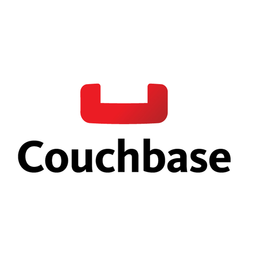
Supplier
Couchbase
Couchbase delivers the world’s highest performing NoSQL distributed database platform. Developers around the world use the Couchbase platform to build enterprise web, mobile, and IoT applications that support massive data volumes in real time. The Couchbase platform includes Couchbase, Couchbase Lite - the first mobile NoSQL database, and Couchbase Sync Gateway. Couchbase is designed for global deployments, with configurable cross data center replication to increase data locality and availability. All Couchbase products are Open Source projects.Couchbase customers include industry leaders like AOL, AT&T, Bally’s, BSkyB, Cisco, Comcast, Concur, Disney, eBay, KDDI, Nordstrom, Neiman Marcus, Orbitz, PayPal, Ryanair, Rakuten / Viber, Tencent, Verizon, Wells Fargo, Willis Group, as well as hundreds of other household names.Couchbase investors include Accel Partners, Adams Street Partners, Ignition Partners, Mayfield Fund, North Bridge Venture Partners, and West Summit.
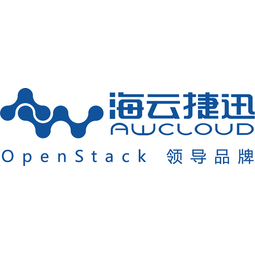
Supplier
AWcloud
Based in Beijing Zhongguancun high-tech park, AWcloud is the leading provider of enterprise OpenStack-powered IaaS for public, private and hybrid cloud solutions in China. Their founding team brought decades of experience developing, building and operating large-scale cloud infrastructure deployments. The core team has a unique array of technical expertise in virtualization, Cloud Computing, infrastructure services and holds an excellent reputation among their customers.
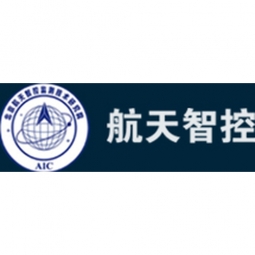
Supplier
AIC Monitor
AIC Monitor is a Beijing-based equipment maintenance and operation solution provider. It has built an Industrial Internet platform that provides customers with multi-scene solutions, including 3D modeling, intelligent expert systems, remote operation and maintenance, wireless inspection, and new large-scale Data online, alarm devices, and other functions.

Supplier
Euristiq
With our professional expertise and broad experience, we help businesses transform. We can solve your particular business objective creating demanding high-performance software. We know how to modernize, integrate, and build complicated systems. Leave your toughest technical challenges to a dedicated IT partner.
合作伙伴.
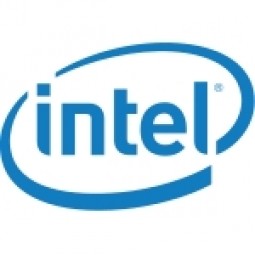
Supplier
Intel
Intel designs, manufactures, and sells integrated digital technology platforms worldwide. The company's platforms are used in various computing applications comprising notebooks, desktops, servers, tablets, smartphones, wireless and wired connectivity products, Wearables, transportation systems, and retail devices. It offers microprocessors that processes system data and controls other devices in the system; chipsets, which send data between the microprocessor and input, display, and storage devices, such as keyboard, mouse, monitor, hard drive or solid-state drive, and optical disc drives; system-on-chip products that integrate its central processing units with other system components onto a single chip; and wired network connectivity products.Featured Subsidiaries/ Business Units:- Intel Inside- Intel Data Center Manager (DCM)- Saffron Technology- Wind River
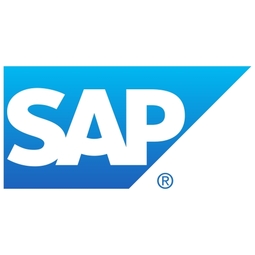
Supplier
SAP
SAP is the leading provider of enterprise resource planning (ERP) software used to integrate back-office functions such as distribution, accounting, human resources, and manufacturing. The backbone of SAP's products has been its On-Premise offerings, spearheaded by its Business Suite, which includes ERP and customer relationship management (CRM) software, among others. Year founded: 1972 Revenue: $17.6 billion (2014) NYSE: SAP
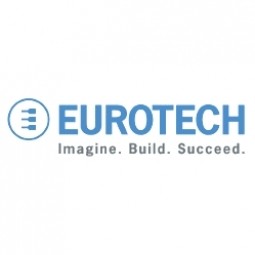
Supplier
Eurotech
Eurotech is a global company focusing on embedded computers and Pervasive Computing, which combines three key factors: the miniaturisation of computers capable of processing information; their spread in the real world - in buildings and machinery, on board vehicles, on persons and in the environment; and their ability to network and communicate. Year founded: 1992 Revenue: $69 million (2014) BIT: ETH
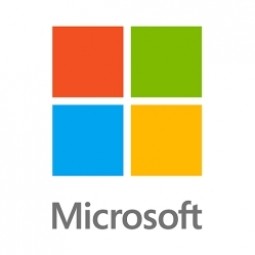
Supplier
Microsoft
Microsoft develops, manufactures, licenses, supports and sells computer software, consumer electronics and personal computers and services. Its best known software products are the Microsoft Windows line of operating systems, Microsoft Office office suite, and Internet Explorer and Edge web browsers.Year Founded: 1975Revenue: $93.6 billion (2014)NASDAQ: MSFT
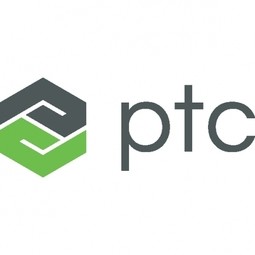
Supplier
PTC
PTC is a global provider of technology platforms and solutions that transform how companies create, operate, and service the "things" in the Internet of Things (IoT). The company's next-generation ThingWorx technology platform gives developers the tools they need to capture, analyze, and capitalize on the vast amounts of data being generated by smart, connected products and systems. The company's field-proven solutions are deployed in more than 26,000 businesses worldwide to generate a product or service advantage. PTC's award-winning CEO, considered an industry thought leader, co-authored the definitive guides to the impact of the IoT on business in the Harvard Business Review.
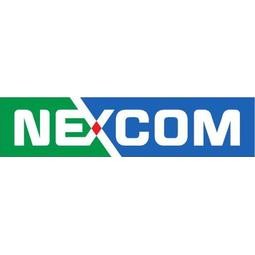
Supplier
NEXCOM
NEXCOM provides the cost-effective and short time-to-market Design and Manufacturing Services (DMS), which is a comprehensive customization service for tailor-made solutions to earn high customer satisfactions. NEXCOM's DMS offers diverse product customization from core modular designs to finished products according to customers' diverse specifications in all kinds of industrial field. The levels of the service include manufacturing new CPU board and system product to fulfill customers' unique applications.





